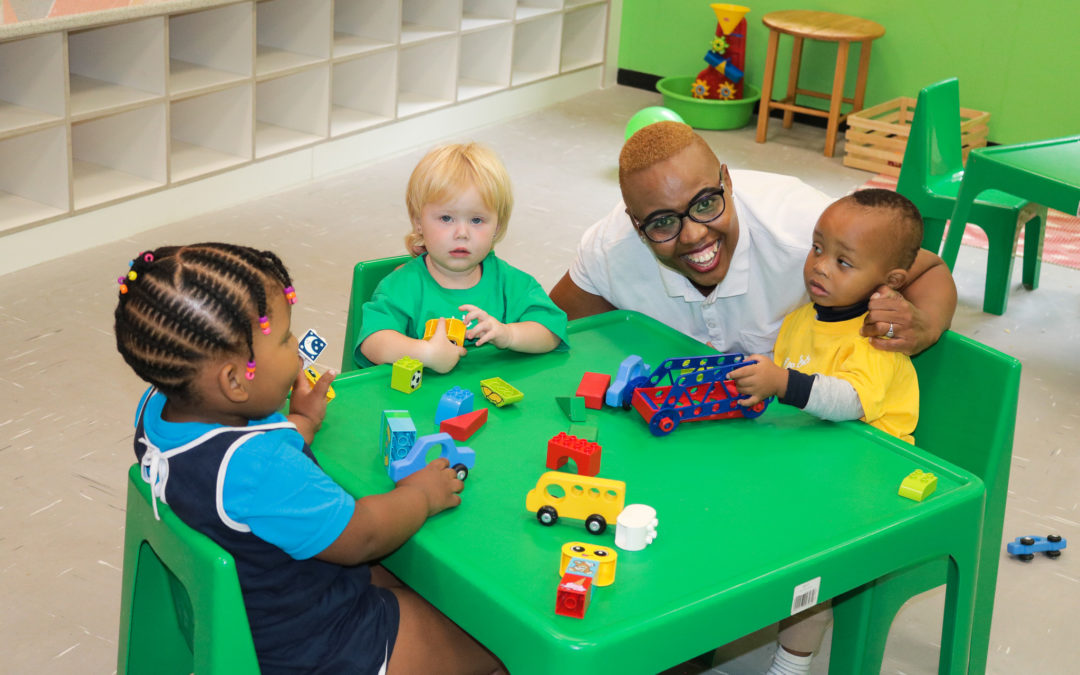The start of a new year, a new teacher, and in some cases, a new school, can be very overwhelming for our children. Often accompanied by clinging to mom and dad and lots of heart-wrenching tears, this is an incredibly difficult time for all parties involved.
The best way to equip your little one to cope is to give them a sense of security and confidence in their ability to handle new or difficult situations by providing daily opportunities to practice building independence. It is quite easy to foster independence in our day to day routines, and you will quickly see the benefits of facilitating your child’s ability to do things for themselves as they begin to take pride in their accomplishments.
At Earlybird, we love the guidelines provided by the Child Mind Institute (and summarized below with permission).
To support your child’s sense of security while extending their independence, you can:
Use routines to tackle unsettling parts of the day
Young children function best when they know what will happen next. Morning, after-school and bedtime routines help children establish a sense of predictability and control as they navigate and try to make sense of the (often chaotic) world around them.
Routines don’t need to mean a rigid, time-dependent, battle for down-to-the-minute perfection, but can be a series of familiar events/cues that happen in the same order at similar times each day, helping children to feel more confident and prepared during parts of the day which have the potential to be unsettling or overwhelming, like drop off and bedtime.
Let your child choose
We’ve all seen a child walking in public who looks like they have climbed out of a washing basket! As embarrassing as it may seem, the parent of that child is doing a great job of allowing their child to show their individuality and exercise independence. Pick your battles and allow your child safe choices to help them feel like they have a voice, laying out 3 outfits to choose from, picking the colour of their yogurt for snack, deciding which game to play during play time, all these will allow them to flex their independence muscle and build their confidence.
Let your child help
“Children love to help! In addition to building independence, this is a great tool for calming tantrums or redirecting behavior by giving them a sense of control.” There is no better way to word this than the way it appears in the article by Alexandra Levine and Laura Philips on the website. Children love to feel appreciated and seen, and if we are giving them positive ways to do this, the negative ways will happen much less.
Give your child chores
Giving children a sense of responsibility in their early years also helps their sense of independence, and it shows they can be trusted. This deepens a reciprocated trust towards adults and the things that they say, like “I’ll be back to fetch you later”. Chores are also a great way to help establish and maintain routine, for example, packing away after dinner, feeding a pet before school or packing their school bag before bedtime.
Nurture free play
Believe it or not, children need to learn how to play. As much as it comes naturally to be inquisitive and explore the world around them, they need encouragement to develop good habits during play times. Taking turns, sharing, saying sorry, all need to be nurtured in our children whilst they are growing. By being present in their play and joining in with what they find interesting, parents can play a huge role in helping their child become a really good self-soother who can read a situation or game and act accordingly. This leads to independent players who show empathy and understanding towards their friends. Having friends at school will definitely make drop off time easier.
These are only a few of the guidelines that were discussed in the article. I really recommend reading it through and understanding the importance of independence, not only for your little one to thrive, but also for a parent’s sanity. The article also covers how to talk to your child which is very much inline with the way our teachers are trained to interact with our children, deepening their sense of self and their place in the world around them.

Recent Comments